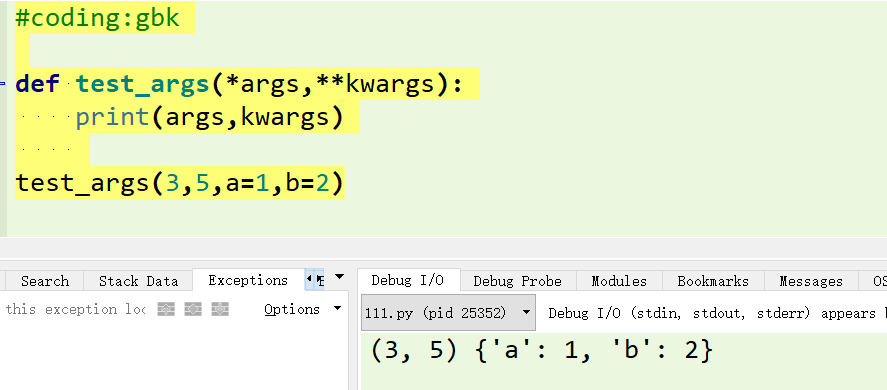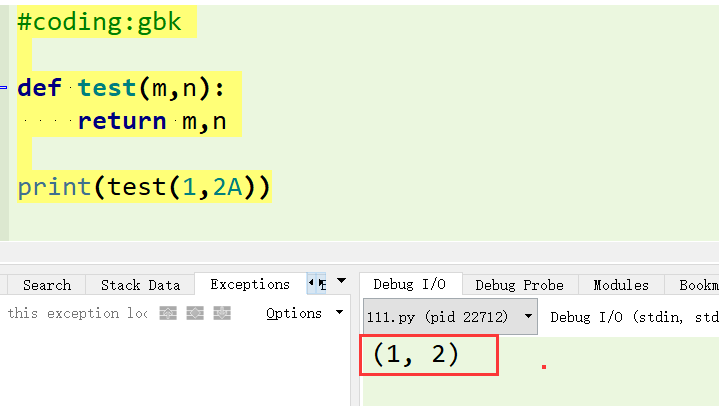函数是将程序中的一段通用代码封装起来,起个名字,程序的其他地方可以方便的调用
函数的定义
def 函数名(参数1,参数2...)
do something...
return 值/对象、函数等
#coding:gbk def python_class(n): print("周六有%s位学习Python" % n) return True python_class(20)

参数类型
1:普通
2:默认参数
3:可变长参数
2:默认参数
3:可变长参数
#coding:gbk def test_args(a,b=1): print(a,b) print(a+b) test_args(3) test_args(3,2)

可变长参数: 调用函数的时候,可以传入任意形式任意个数的参数。
* 代表元祖,会把所有没有指定key的参数,把这一类参数放到一个元组中去。
** 代表的是字典 会把所有指定key的参数,放到字典当中。
*args : tuple
**kwargs : 就是当你传入key=value是存储的字典
#coding:gbk def test_args(*args,**kwargs): print(args,kwargs) test_args(3,5,a=1,b=2)

函数的返回值
#coding:gbk def test(m,n): return m,n print(test(1,2A))
